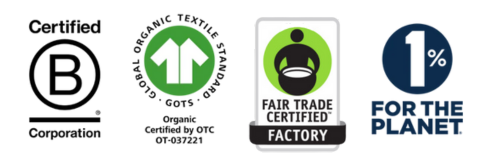This blog is a part of our Ultimate Guide to Baby-Led Weaning. Check it out for more information!
Figuring out what to feed your little one can be a mix of excitement and uncertainty, especially if you're thinking about baby-led weaning (BLW). In this post, we'll help you understand which foods are good for your baby and why, focusing on keeping things safe and easy.
We’ll cover how to make sure your baby gets a mix of foods that help them grow strong and healthy. We will also talk about iron foods, high-energy foods, fruits and veggies, and common allergens, making sure you're giving your baby a variety of nutrients they need.
So, if you're a new parent or have been through this before, come along with us as we focus on giving your baby a balanced plate. Let's make sure they enjoy healthy foods right from the beginning.
How to Build a Balanced Plate for Baby-Led Weaning
Prioritize adding in solids while still maintaining breast milk or formula as the main source of nutrition. Include iron-rich foods, high-energy foods, fruits and vegetables, and common allergens in your baby's diet to provide a wide variety of nutrients and set your baby up for success.
Iron Rich Foods
By 6 months of age, your baby will start to lose their iron stores. Include iron-rich foods such as animal meats, nuts, beans, seeds, tofu, eggs, dark green vegetables, and enriched grains in their diet.
High-Energy Foods
Choose high-fat foods like avocado, whole milk yogurt, cheese, nut and tree nut butters, butter, and eggs to support brain development and growth.
Fruits and Vegetables
Introduce a variety of fruits and vegetables to provide essential vitamins, minerals, fiber, and antioxidants. Examples include banana, applesauce, avocado, sweet potato, peas, and broccoli.
Common Allergens
Research now suggests that introducing common allergens early and often can help prevent food allergies. Prioritize introducing peanuts, tree nuts, egg, soy, milk, wheat, fish, and sesame into your baby's diet.
Best First Foods for Baby-Led Weaning
1. Avocado
A high-fat fruit that is easy to mash and has a smooth texture.
2. Egg
A common allergen that contains iron and choline, important for brain development.
3. Yogurt
Offered with an easy-to-hold utensil, it provides the nutritional benefits of protein, calcium, vitamins, and probiotics.
4. Pasta
Fortified with iron, choose lentil or chickpea-based pasta for added nutrients.
5. Beef
Contains heme iron, which is more easily absorbed by the body.
6. Banana
A common first food due to its mashable texture and natural sweetness.
7. Tofu
Contains iron, easy to manage texture, and a common allergen.
8. Broccoli
Contains iron and Vitamin C, which aids in iron absorption.
9. Nut Butter
Introduce nut butter to minimize the chance of food allergies, rich in iron, protein, and healthy fats.
10. Sweet Potato
Easy to offer as a puree or table food, packed with fiber, vitamins, and minerals.
Baby-led weaning can be a fun process for both you and your baby. Keep in mind that every child is unique. Pay attention to their cues, offer a variety of foods, and enjoy the process of watching them explore and develop their taste preferences. With the right balance of nutrition and fun, you'll set the stage for a lifetime of healthy eating habits.
How Tabeeze Can Help During Baby-Led Weaning
Let Tabeeze make your baby-led weaning journey easier. Our baby onesies feature convenient shoulder snaps that help minimize the mess during baby-led weaning.
With a quick snap, Tabeeze allows you to place the bib right onto your child’s bare chest during mealtimes, keeping the outfit clean and away from the mess of baby-led weaning as your little one explores and plays with the food as they explore new tastes and textures. Tabeeze adds convenience to your baby-led weaning adventure, ensuring a more enjoyable experience for you and your little one. Say farewell to stained tops and numerous outfit changes due to meal time, and embrace the convenience of Tabeeze during your baby-led weaning journey.
Disclaimer: The information provided in this blog post is for educational purposes only and should not replace medical advice. If you have specific concerns or questions about introducing solid foods to your baby, consult a healthcare professional or a registered dietitian.






